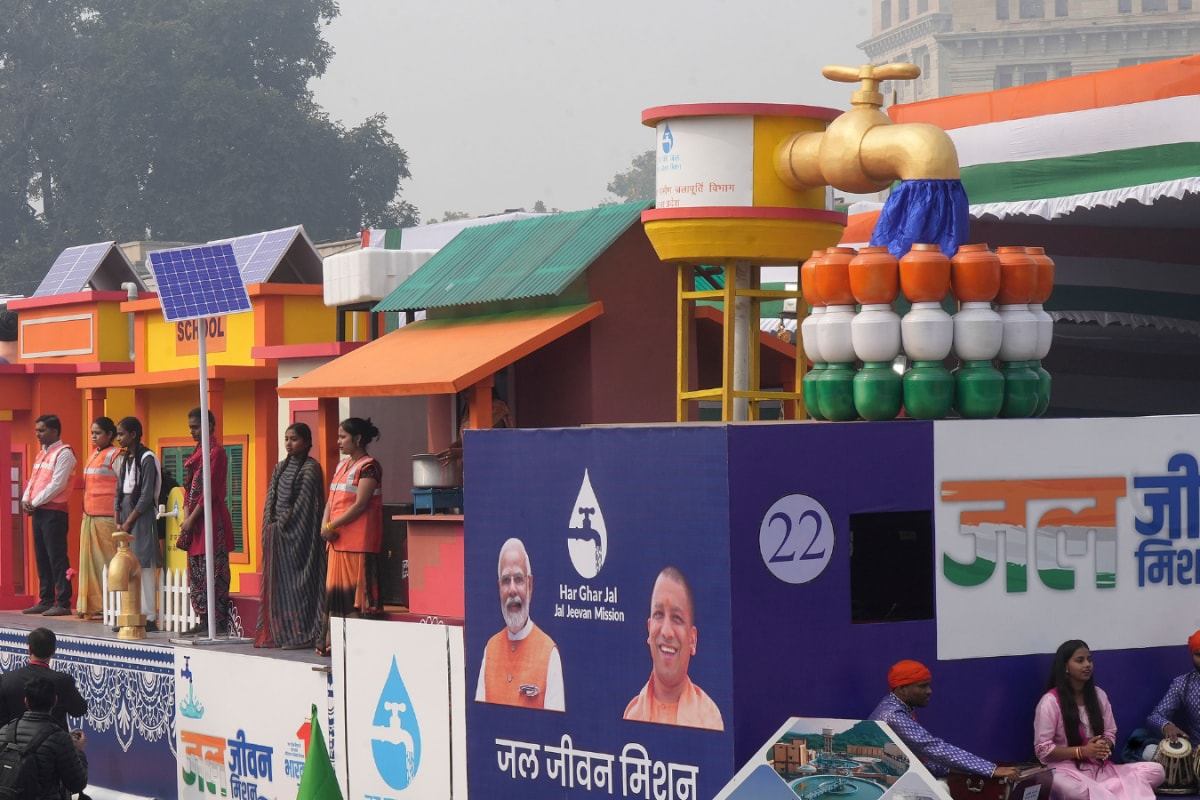

The Jal Jeevan Mission (JJM), a flagship initiative to provide safe and adequate drinking water to every rural household in India by 2024, is facing scrutiny due to project delays and cost overruns. With an estimated ₹1 lakh crore at stake, the government has formed 100 teams to investigate delays in 175 projects across the country.
Launched on August 15, 2019, by Prime Minister Narendra Modi, the JJM aimed to provide Functional Household Tap Connections (FHTC) to all rural homes by December 2024. However, with the deadline missed and only 75% of the target achieved, the mission has been extended to December 2028. As of December 20, 2024, 20.59% of the nation's rural households were still awaiting implementation of the program.
The decision to deploy inspection teams came after a review meeting chaired by the Cabinet Secretary on May 8, 2025, to assess the implementation of schemes under the Ministry of Jal Shakti. The teams comprise senior officials, including secretaries, joint secretaries, and directors from various central government departments. According to an order issued by the Department of Personnel and Training (DoPT), 99 nodal officers have been assigned to check 183 projects in 135 districts across 29 states and Union Territories. These projects, reportedly selected at random, represent approximately ₹1.5 lakh crore in cumulative expenditure, roughly 20% of the total approved spending under the JJM since its inception.
These states and UTs include Andhra Pradesh, Chhattisgarh, Goa, Arunachal Pradesh, Assam, Gujarat, Haryana, Jharkhand, Karnataka, Himachal Pradesh, Jammu & Kashmir, Kerala, Ladakh, Maharashtra, Manipur, Madhya Pradesh, Meghalaya, Mizoram, Odisha, Puducherry, Nagaland, Punjab, Rajasthan, Tripura, Uttar Pradesh, Sikkim, Tamil Nadu, Uttarakhand, and West Bengal. Madhya Pradesh has the highest number of schemes to be assessed (27), followed by Rajasthan (21), Uttar Pradesh (18), and Karnataka (16).
The Ministry has prepared a questionnaire for officials to collect detailed information on project execution and spending during their visits. The inspections aim to assess whether the rising costs are justified and if the work done meets the expected standards. Concerns have been raised about inflated work contracts for providing tap water connections in some states, regardless of the ruling political party.
A recent proposal by an Expenditure Secretary-led panel recommended a 46% cut to the Water Resources Ministry's budget request, demanding ₹2.79 lakh crore to complete the mission by December 2028. The Expenditure Finance Committee (EFC) approved only ₹1.51 lakh crore, potentially shifting over ₹1.25 lakh crore burden to states. The EFC also proposed reducing the mission's overall outlay by ₹41,000 crore to ₹8.69 lakh crore, against the ₹9.10 lakh crore sought by the Jal Shakti Ministry.
Several states continue to face "major constraints and problems" in implementing the JJM, including delayed project work, unreliable groundwater sources, water contamination, and difficult terrain. As of December 2024, approximately 42.0% of the drinking water samples tested by laboratories in Sikkim were found to have contaminants, making it the state with the poorest water quality in India, followed closely by West Bengal at 39.5%.
Delays in the JJM's implementation have significant implications, including potential health costs and gendered burdens of water scarcity. Studies suggest that 100% coverage of the JJM could prevent 400,000 diarrheal deaths, save approximately 14 million Disability Adjusted Life Years, and reduce under-five mortality by 30%, saving 136,000 lives annually. In areas without safe tap water, women often travel long distances to collect water, leaving them with little time for education and employment.
The Jal Jeevan Mission has the potential to transform rural India by providing access to clean and safe drinking water, improving public health, and reducing the burden on women. However, addressing the project delays, cost overruns, and funding gaps is crucial to ensure the mission's success and achieve its goal of "Har Ghar Jal" by 2028.